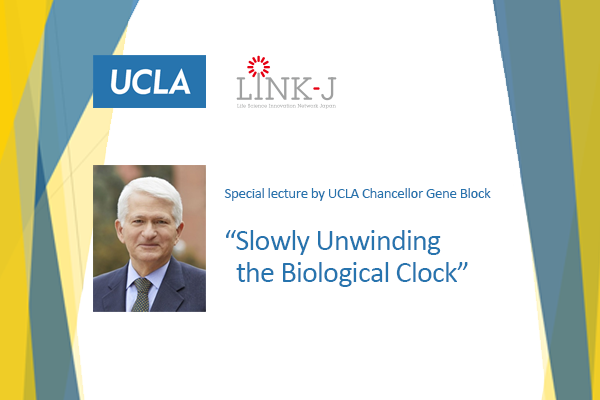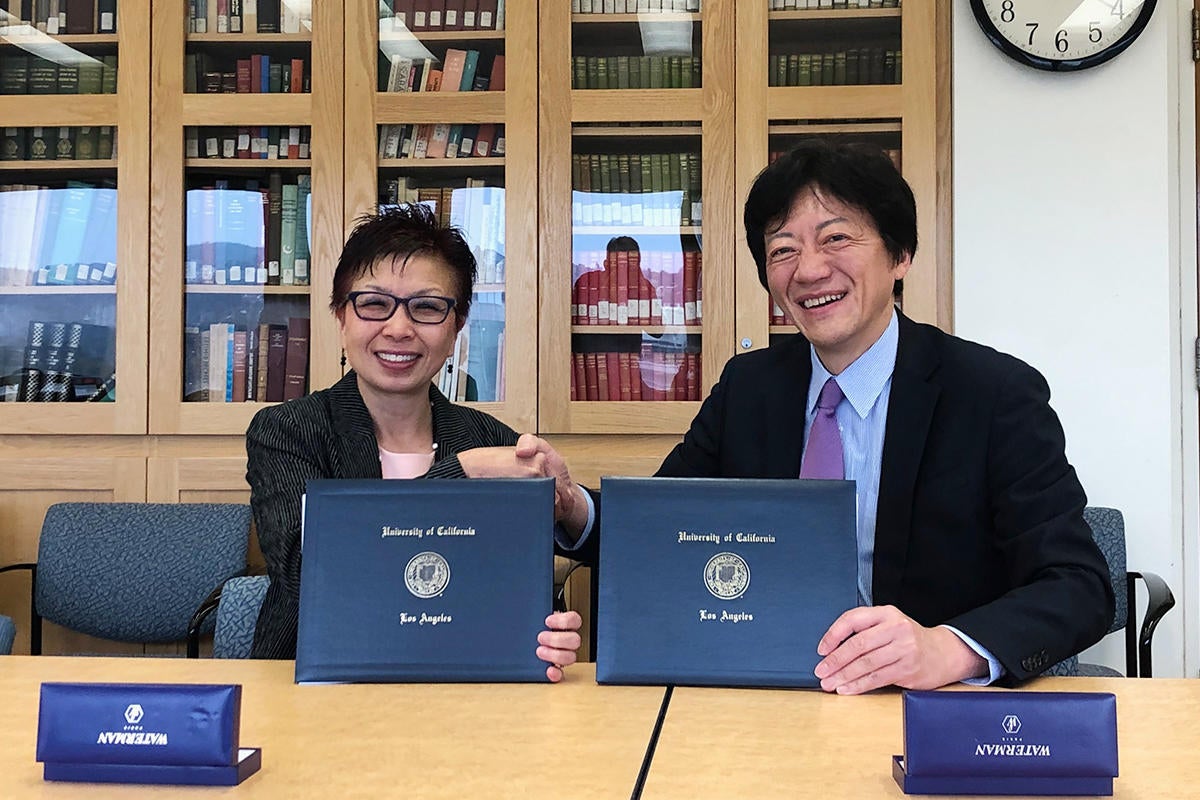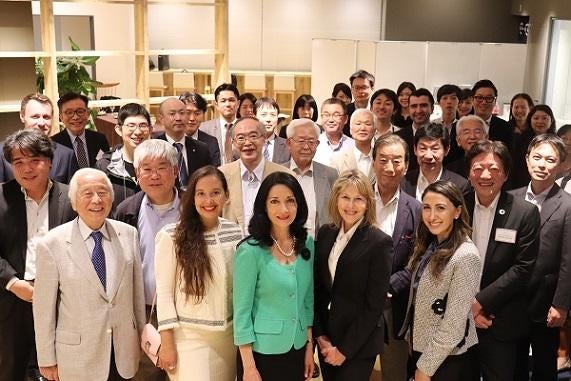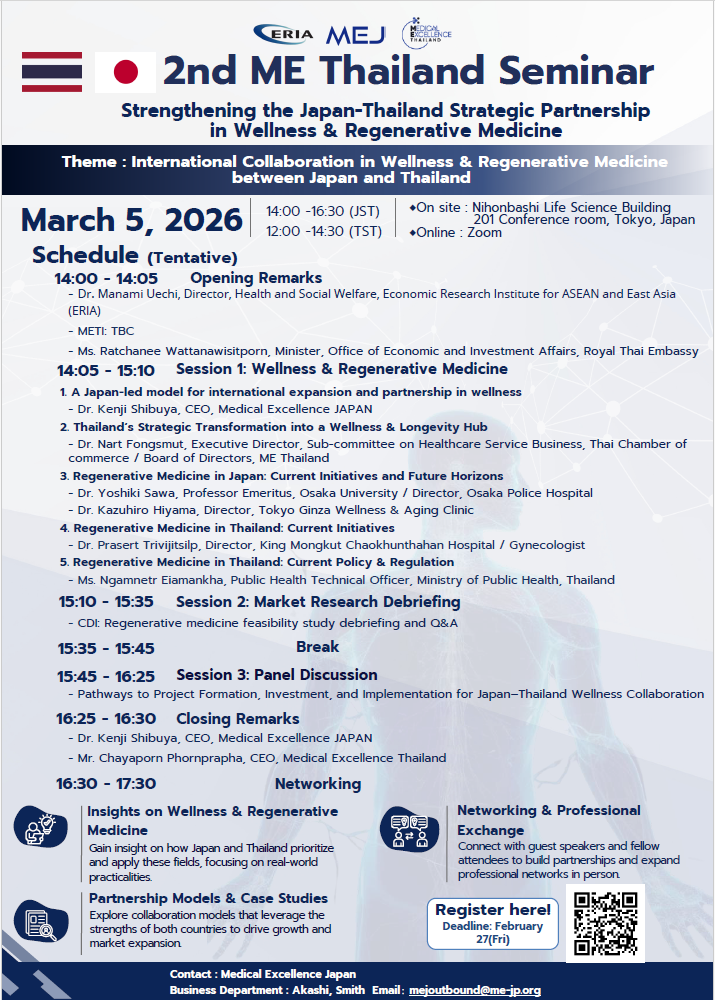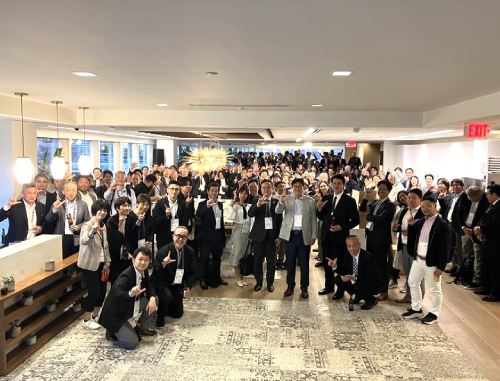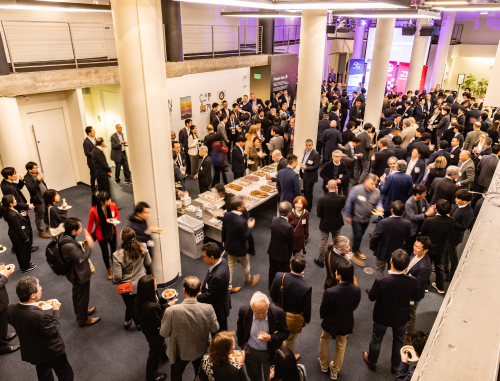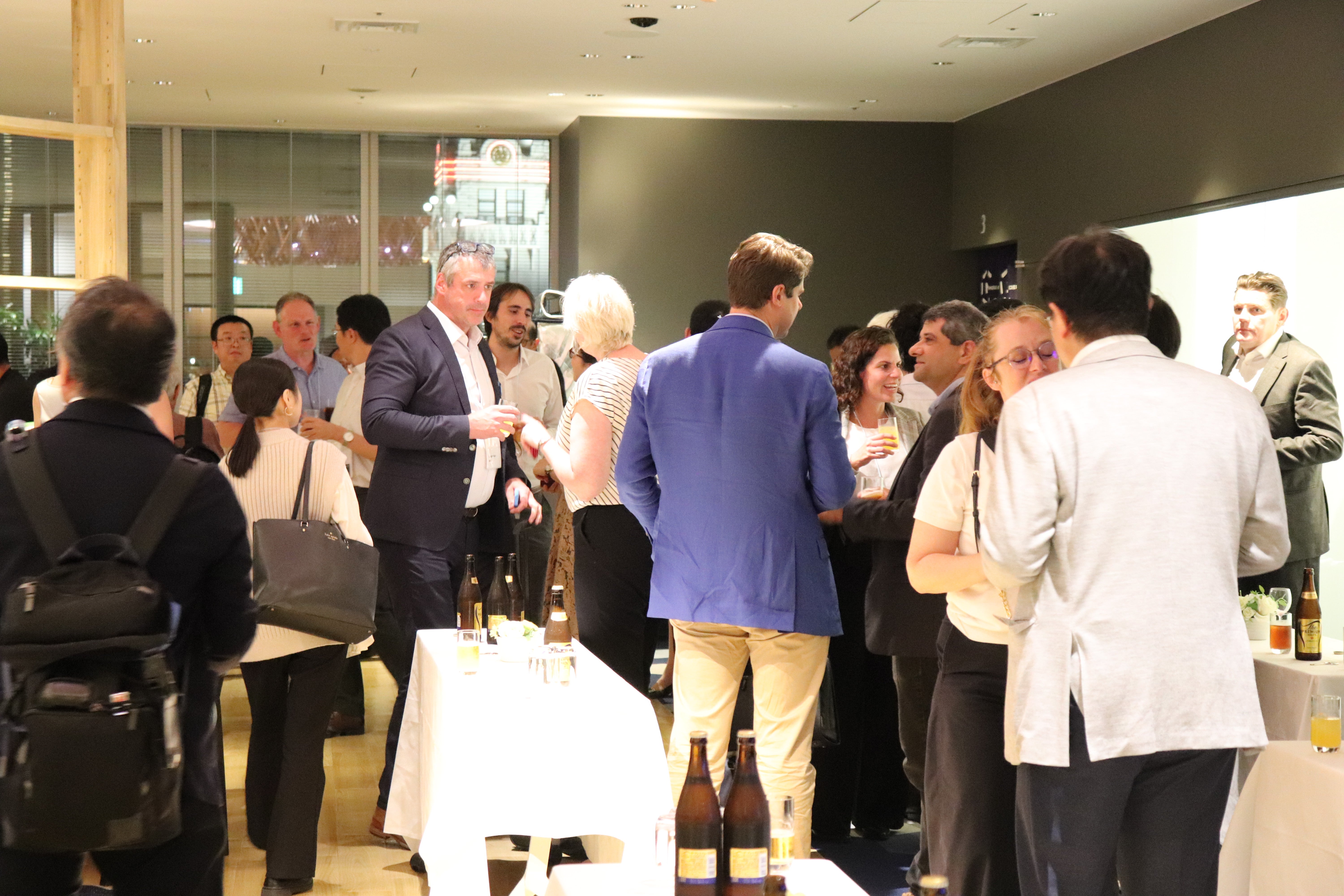On August 28, LINK-J hosted a networking lunch reception followed by a special lecture by Dr. Gene Block, Chancellor of University of California, Los Angeles (UCLA), titled "Slowly Unwinding the Biological Clock", at Nihonbashi Life Science Hub.
Chancellor Block was in Japan to celebrate the 100th anniversary of UCLA with its Japan alumni. In addition to serving as the Chancellor, he is also an expert of neuroscience with research focused on the effects of aging in the nervous system and how it impacts biological timing in mammals, including humans.
For LINK-J, it was great honor to host this event on this occasion as it was the first event with UCLA after concluding an MOU for collaboration by both parties on June 3rd,2019.
Speaker: Chancellor Gene Block, UCLA
 Chancellor Gene Block, UCLA
Chancellor Gene Block, UCLA
Slowly Unwinding the Biological Clock
Chancellor Gene Block gave a lecture "Slowly unwinding the biological clock" based on the latest research on how circadian rhythms regulate our sleep and wakefulness cycles, which are too often disrupted by shifting work schedules, technology exposure, and travel across time zones./p>
The Chancellor talked about circadian rhythms and the negative effects of lack of sleep. He also mentioned that many Japanese researchers and Japanese products contributed to the study of sleep and biological clocks.
The circadian rhythm has a period of almost 24 hours, but it is not exactly 24 hours and 0 minutes. It's clear that every mammalian has a certain rhythm regardless of the with or without of light. He showed the results of an experiment that even mice raised in the dark have a certain rhythm of their sleep time. And this rhythm is governed by the suprachiasmatic nucleus (SCN) in the hypothalamus of the brain. All tissues and organs have biological clocks that are independent, but they are linked to each other, and SCN is at the center of them.
The Chancellor explained using the pendulum diagram that SCN and other organs were independent of each other but connected by something like a rubber band, interacting with each other, and synchronizing. Mammals, including humans, have a strong link between SCN and other organs, and people can respond quickly to time difference such as jet lag when they are young. However, connection between SCN and other organs weaken with age, so it would become difficult to adapt to the time difference.

Questions and Answers
Participants listened very enthusiastically, and in the question-and-answer session, there were lively questions from the participants, such as "Can companies use the chronotype (whether morning or night) for planning working shift of associates?". For the question "Can I change my chronotype?", the Chancellor answered, "It is very difficult to change because it has a genetic basis."
Chancellor Block suggested that if scientists collaborate on curriculum in school education by taking the rhythm of the biological clock into account, learning will increase. Furthermore, since chronotypes differ from individual to individual, it would be more effective if the biological rhythm could be utilized especially in special education for children with disabilities. In addition, to the question, "How long do you sleep? You might spend very busy days as a researcher and the Chancellor," he answered, "I am trying to sleep for 7 hours." He has always emphasized to students that it is important to get a good sleep, as lack of sleep can cause emotional problems.

A networking coffee time was held after the question and answer session. Over 50 participants attended the seminar from a wide range of areas, including private companies related to sleep, academics, etc., even during weekdays. Many of them remained in the venue after the Q&A session for networking with the Chancellor and his colleagues from UCLA.
